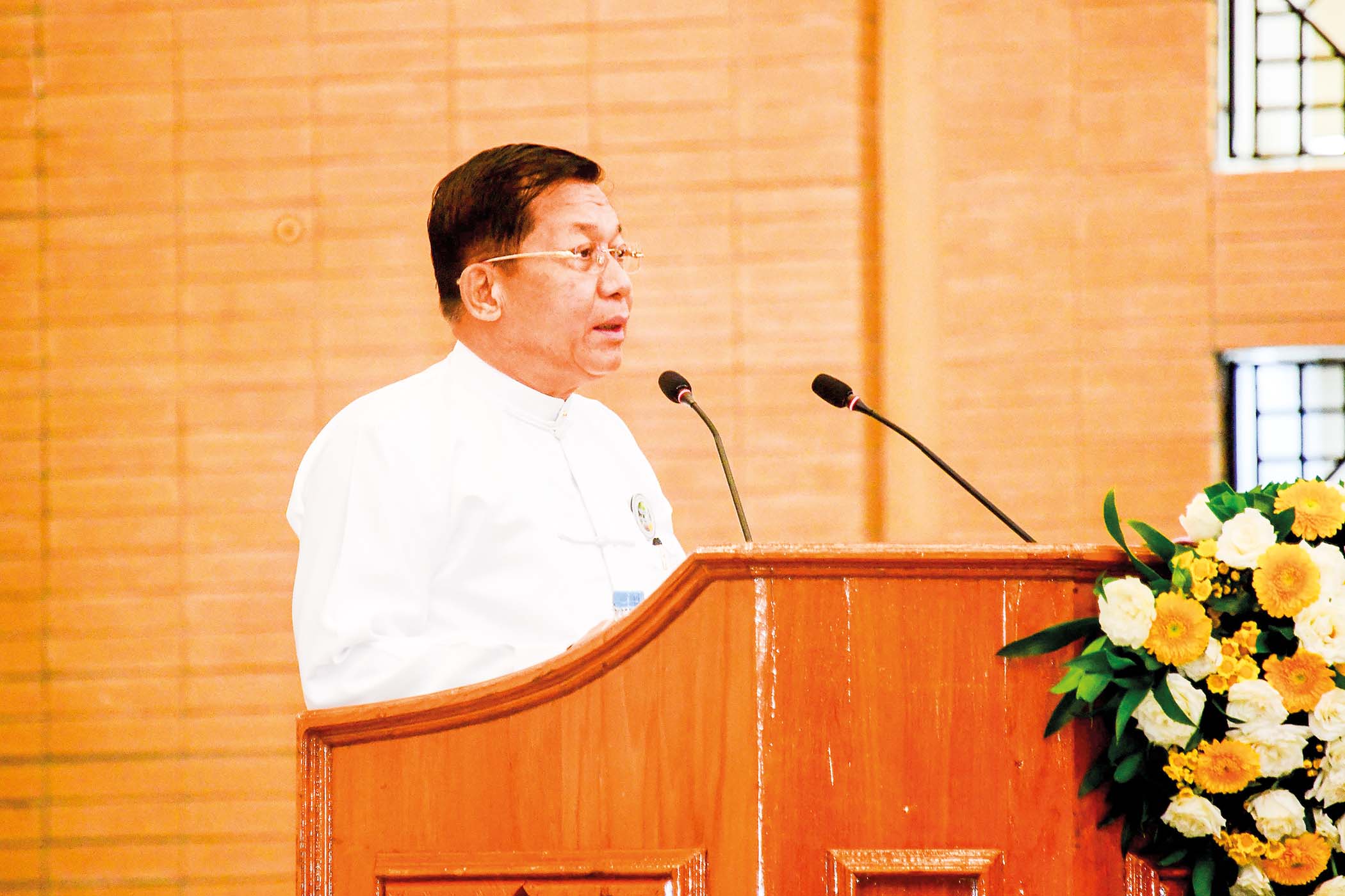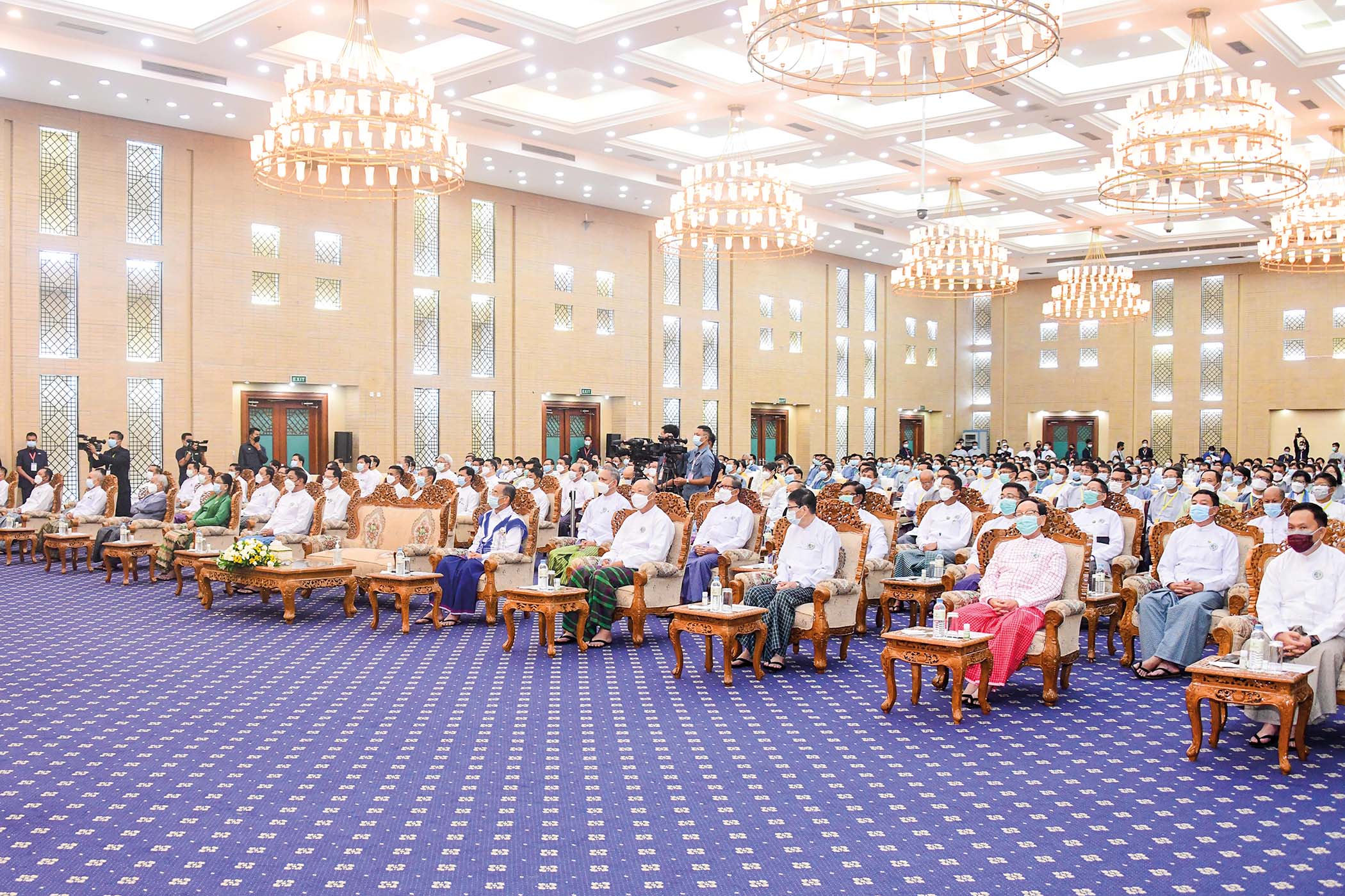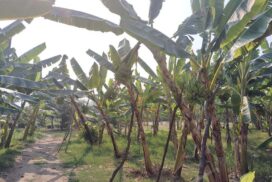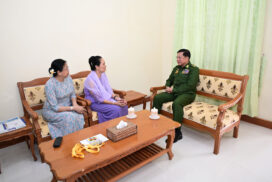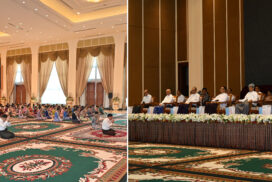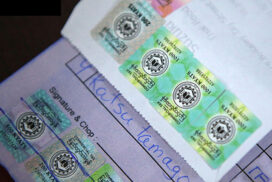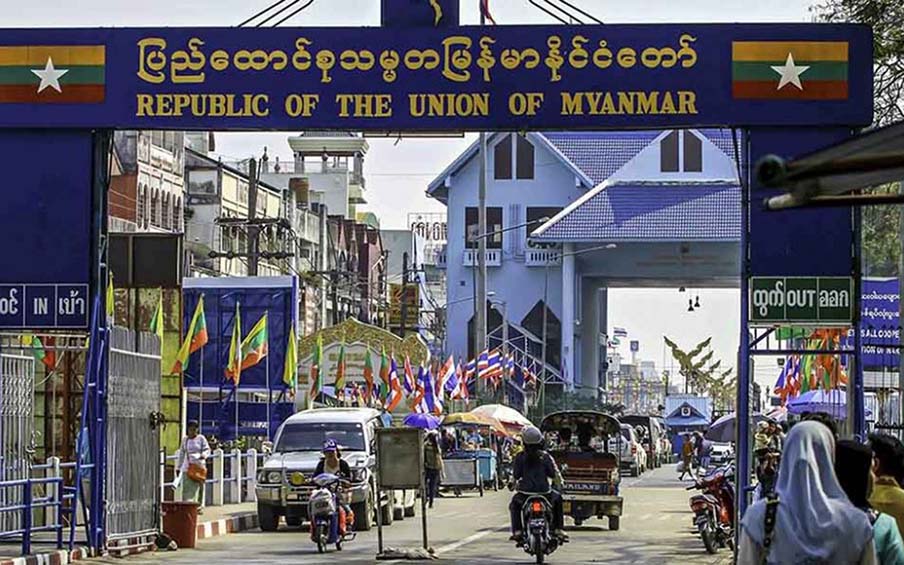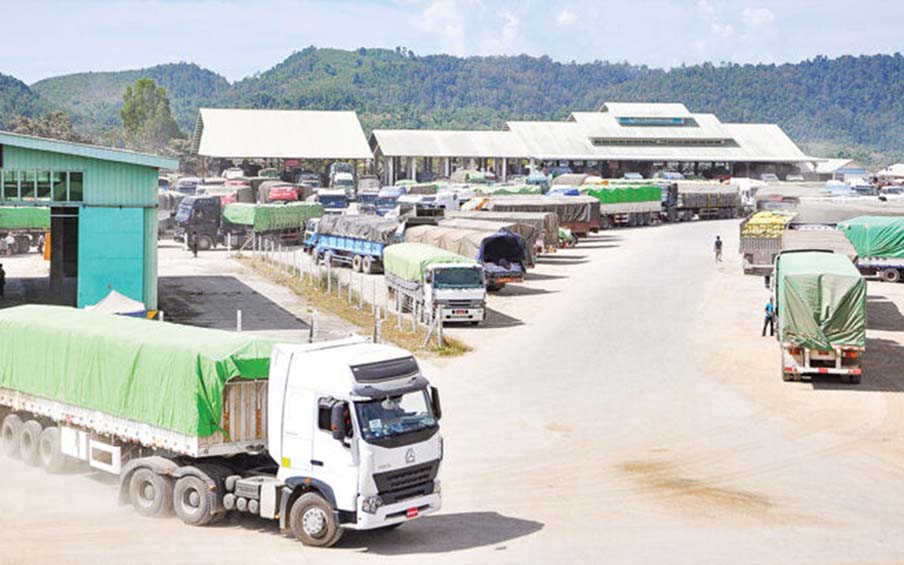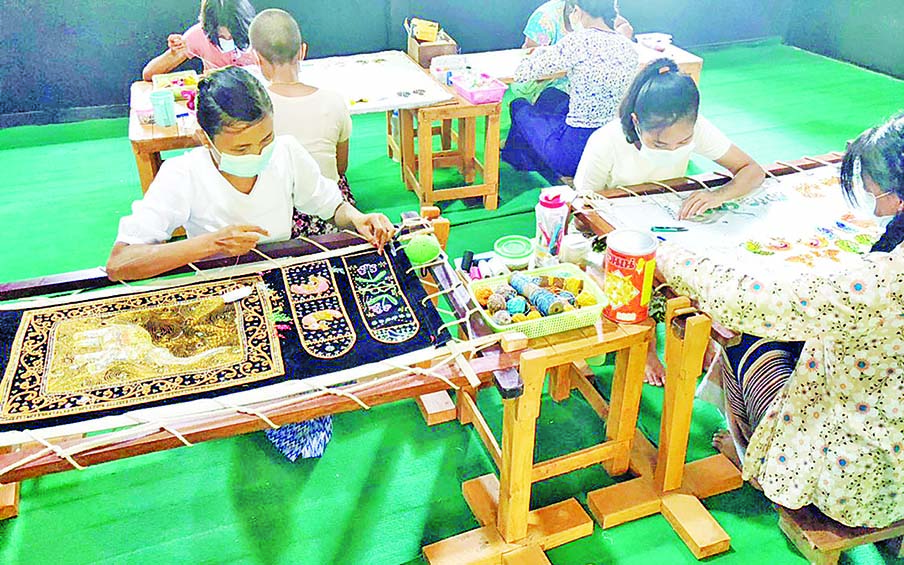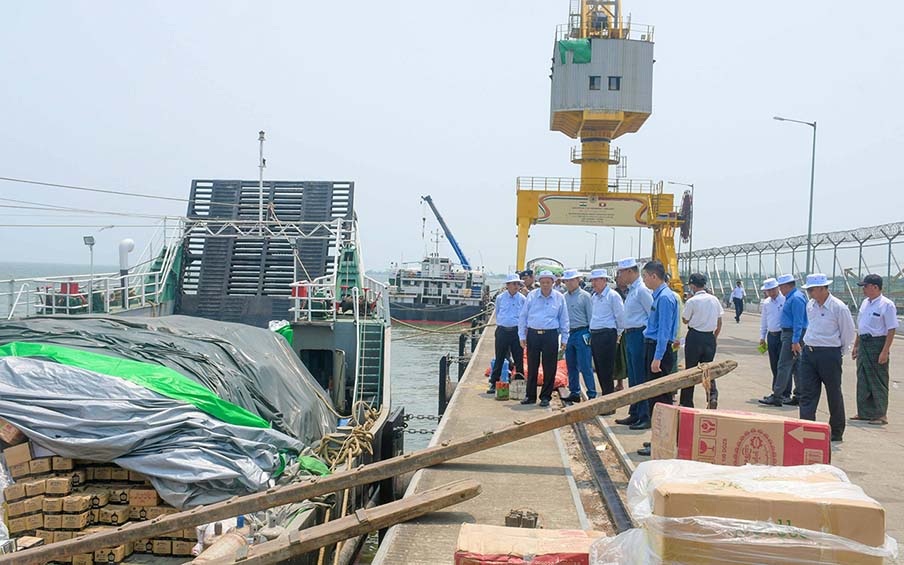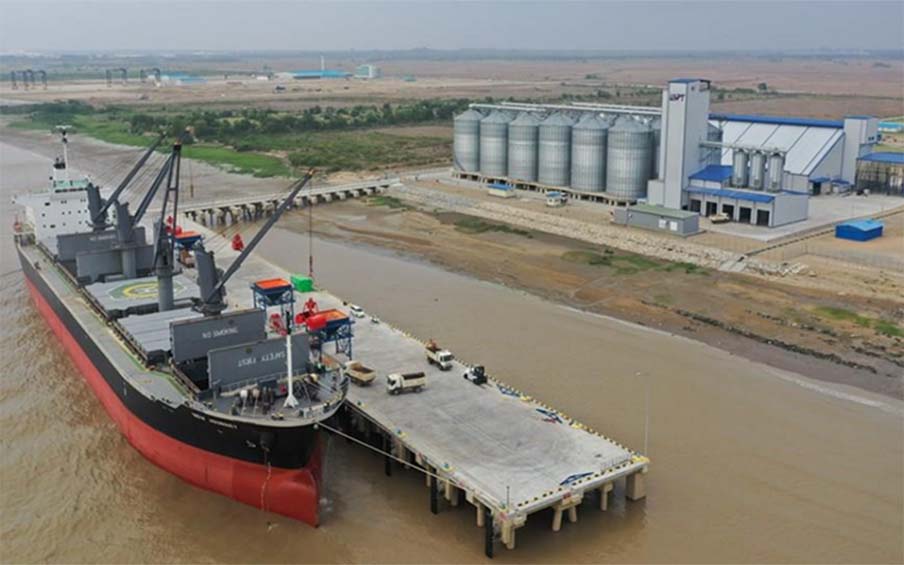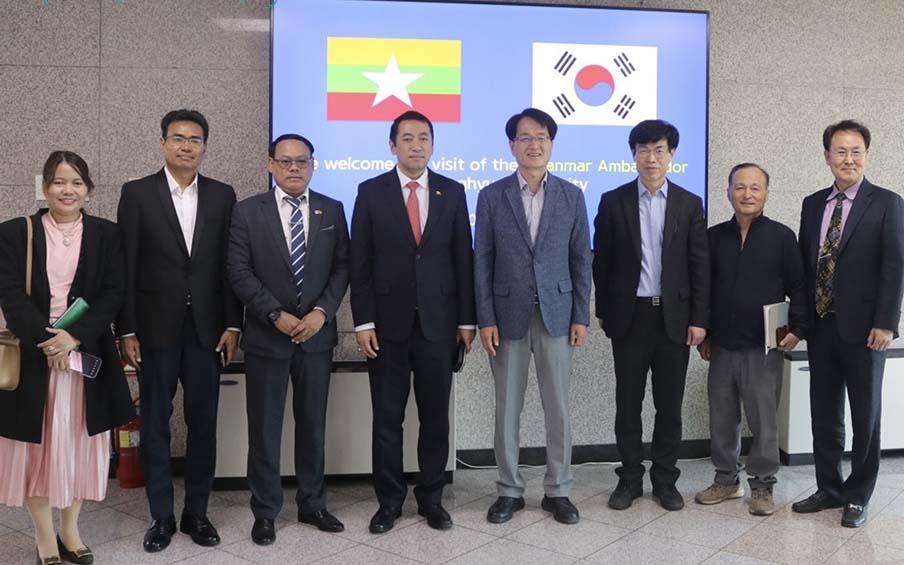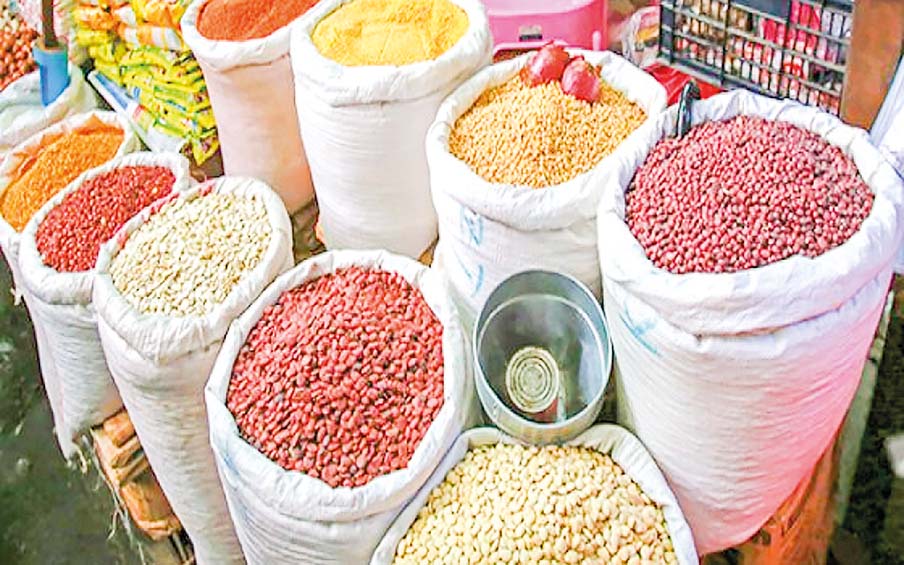Myanmar has formed 25.8 per cent of the forest reserves/protected forests to meet the 30 per cent of the national lands in 2030 for conservation of forest ecosystem and natural resources, said Chairman of the State Administration Council Prime Minister Senior General Min Aung Hlaing at the ceremony to mark the World Environment Day 2022 at the Myanmar International Convention Centre-II in Nay Pyi Taw yesterday morning.
In his speech, the Senior General said the sixth global environment survey report of the UNEP in 2019 stated that if urban population is on the rise till 2050, and if urbanization is not systematically managed, the globe will face social and environmental challenges. If it does not notice environmental arrangements in the economic development, the people will face lessening of natural resources and environmental degradation. Myanmar needs to emphasize lessening the environmental degradation and bad impact of climate change.
As agriculture sector is a backbone of the State economy. Root causes of declining agricultural productivity are shorter monsoon, annual average temperature and inflow of seawater into coastal farmlands.
Hence, efforts are being made to arrange the use of crops, resilience of thirst, flooding and pests, season-harmonized crops and patterns, and arrange modern irrigation systems. Livestock sector is a basic factor for increasing meat consumption. As waste from animals made as bio-fertilizers bring benefits to the environments, reducing bad impacts, it is necessary to develop the livestock farms in harmony with the nature and health.
According to the FAO’s the State of World Fisheries and Aquaculture 2020, conservation of fresh and marine resources are of importance for development of future livelihoods and food sufficiency. Hence, relevant departments, private organizations and people are to join hands in effectively prohibiting the illegal fishery work for sustainable development of fish sources and the ecosystems and preventing water pollution in creeks, rivers and seas due to plastics, waste and sewage water.
As increasing the water, solar and wind clean energy sources based investment can contribute much to generating of sufficient electricity and social economic development as well as sustainable conservation of environment, it is necessary to generate electricity based on renewable energy.
Myanmar is implementing provisions of the UN Climate Change Framework Convention and Paris Conventions.
So far, Myanmar has formed 25.8 per cent of the forest reserves/protected forests to meet the 30 per cent of the national lands in 2030 for conservation of forest ecosystem and natural resources. Likewise, natural lands have been formed accounting for 6.43 per cent out of 10 per cent of the nation. It is necessary to reduce reliance of businesses on products of underground and above ground natural resources. Myanmar suspends export of timber logs to foreign market. Likewise, timber extraction was also suspended in the mini budget of 2021-22 fiscal year and 2022-23 FY. Similarly, excavation of jade was also suspended in Lonkhin, Phakant and Mohnyin regions.
The survey of the UNEP stated that some seven million of global people lose their lives on a yearly basis due to environmental pollution and air pollution. The global people dispose 11.2 billion tons of waste yearly, eight million tons of which flow into seas and oceans, causing environmental pollution.
There are more than 100,000 items of chemicals and elements used by the humans across the world. If chemicals are systematically used, it will severely affect the health of the humans and environmental pollution. Hence, all need to manage systematic use of chemicals.
Responsible persons from all sectors need to adopt the plans for controlling the plastic pollution in Myanmar and abide by it. People need to use plastic packaging and usages on unavoidable occasions.
Systematic management of waste is of great importance to control the pollutions. Hence, development organizations and relevant departments must effectively implement the national waste management strategy and the master plan adopted by the government.
Increasing investments in the green economy, for instance: generating electricity from solar energy, ecotourism and manufacturing of electric cars can ensure betterment of natural investments of the State, environmental conservation, and benefit of social, economic and environmental benefits.
With regard to environmental conservation, development tasks must be added with environmental issues in harmony with environment, synchronized development, encouragement to investment for green economy which lessens carbon production without harming the environment, improvement of climate conditions, conservation of ecosystems and prevention of pollution including waste management.
A video message sent by the UN Secretary-General and one more video message by the UNEP Executive Director were presented.
The Senior General presented the first prize to winners in the essay and article contests.
Union Minister for Natural Resources and Environmental Conservation U Khin Maung Yi presented the environmental sustainable development city award to deputy director U Ye Naing of NyaungU Township Development Committee. Next, the video about 2022 World Environment Day was presented.
The Senior General and party interestingly viewed round the booths to mark the World Environment Day.—MNA
It is necessary to reduce reliance of businesses on products of underground and above ground natural resources: Senior General
- June 06, 2022
- 608

